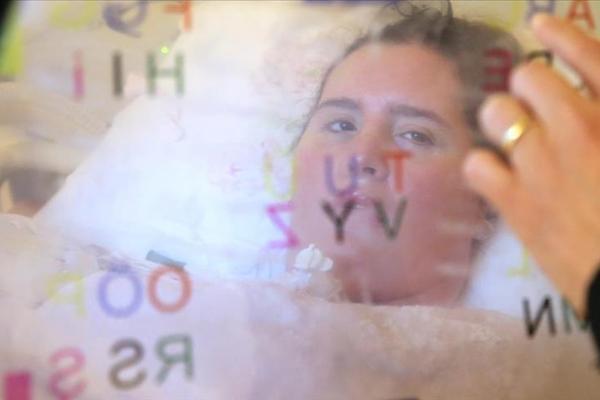Woman with ALS disease to donate book profits
DÜZCE


Diagnosed with amyotrophic lateral sclerosis (ALS), a neuromuscular disease, Özlem Özalkan from northwestern Turkey plans to donate profits she earned from her book to homeless children and spend them for water wells in Africa.
The 38-year-old woman went to a hospital 13 years ago when she had a complaint about the loss of power in her hands and was soon after diagnosed with ALS. With the inability to use other parts of her body over time, Özalkan and her 15-year-old daughter settled in with her family. Her condition worsened and she began to communicate with the others only with her eyes.
Though ALS can affect anyone, it often appears in people aged 40-70. The motor neuron disease affects nerve cells in the brain and spinal cord, leading to a loss of muscle control.
Neurons control muscles which enable people to walk, speak, breathe, and eat. If the nerves do not activate muscles, they would gradually weaken.
Özalkan has been on life support machines for about eight years and only consuming liquid formula.
She initiated a campaign to open water wells in Africa on social media through a special computer program that enables writing with eye movements. Through an aid agency, Özalkan pioneered the opening of eight water wells in the continent.
She wrote a book titled Bedensiz Hayat (Life Without Body) via the same computer program and it hit the shelves two months ago.
The book narrating her life was published 5,000 copies in the first print run and it reached large masses, paving the way for the second edition of the book.
Özalkan plans to use some amount of the profit for the benefit of orphans and to open water wells in Africa.
Ozlem's brother Beşir Özalkan told Anadolu Agency that his sister had worked on the book for the past three years.
"It is an exemplary book that tells her story and has chapters that narrate her life and a life without a body," he said.
It is an "extremely emotional" book, the brother said, also hailing his sister's passion for life despite everything.
"This book and the wells she opened indicate her devotion to life,” he said, adding that her motive behind the move was to bring the water she cannot drink to those who need it.
Although ALS is classified as a rare disease based on its prevalence, there are 140,000 new cases diagnosed worldwide each year, according to the International Alliance of ALS/MND Associations.
